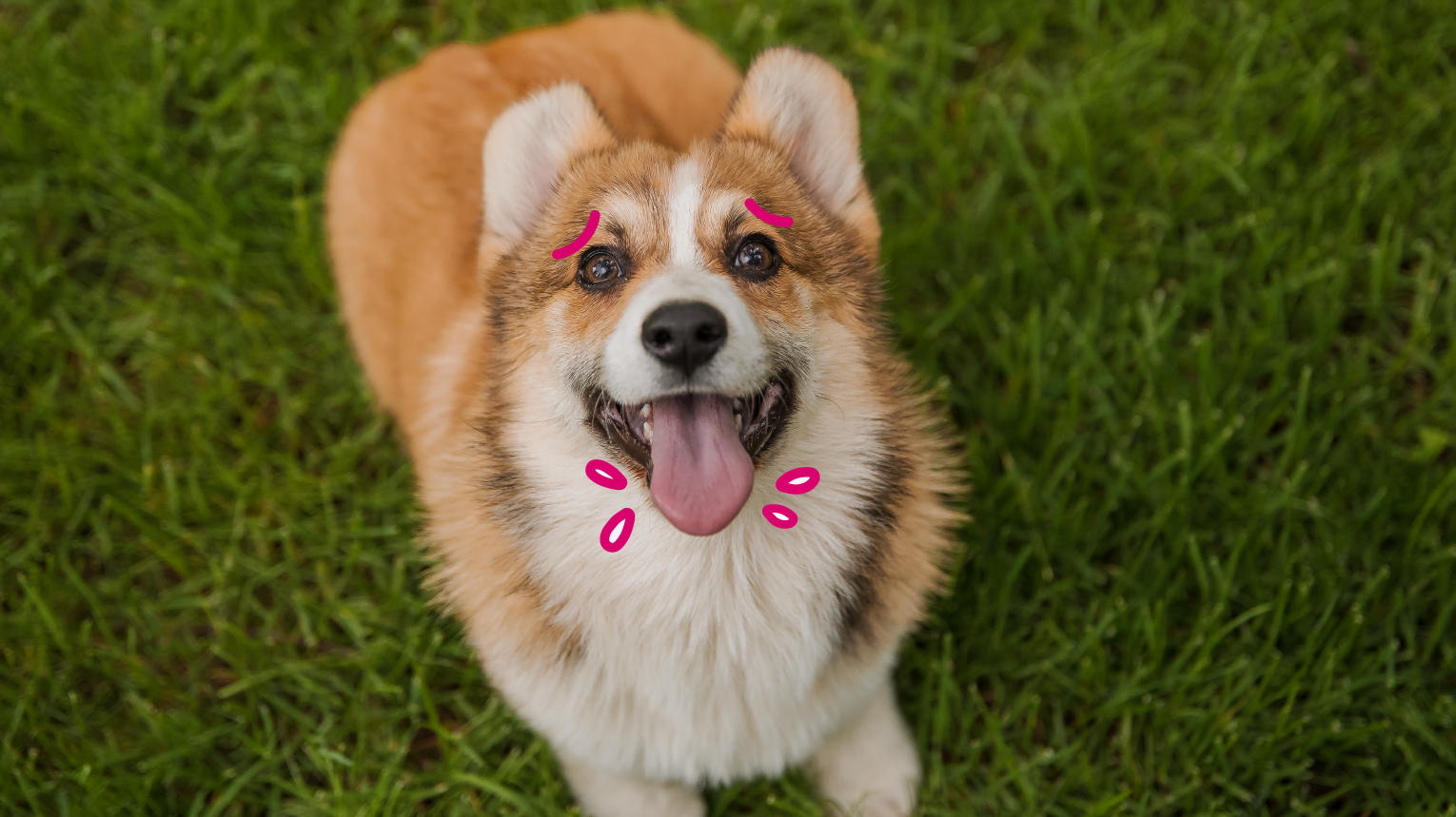Old Labradors may pant excessively due to health issues, heat, or anxiety. It’s essential to monitor their behavior and consult a vet if needed.
As dogs age, their bodies undergo various changes that can affect their health and behavior. Labrador Retrievers, known for their friendly and energetic nature, may start to show signs of discomfort or stress in their golden years. Panting is a common response to several factors, including pain, fatigue, or environmental conditions.
Owners often worry when they see their beloved pets panting more than usual. Understanding the underlying reasons for this behavior is crucial. It can help you provide the appropriate care and comfort your Labrador needs. Regular vet check-ups can also ensure that any potential health issues are addressed promptly.

Credit: www.seniordogrevolution.com
Signs Of Age-related Changes In Labradors
As Labradors grow older, they go through many changes. These changes can affect their health and behavior. Owners should know the signs. Early detection can help manage their needs better.
Common Symptoms Of Aging
- Reduced Energy: Older Labradors may not play as much.
- Weight Changes: They may gain or lose weight unexpectedly.
- Joint Stiffness: Difficulty in getting up or walking.
- Vision and Hearing Loss: They may not see or hear well.
- Dental Issues: Bad breath or difficulty eating.
Recognizing these symptoms can help you provide better care. Regular vet check-ups are essential for older Labradors.
Panting As A Natural Response
Panting can be common in older Labradors. It often signals discomfort or stress. Here are a few reasons why your dog might pant:
| Reason | Description |
|---|---|
| Heat | Older dogs may struggle to regulate body temperature. |
| Pain | Panting can indicate pain from arthritis or other issues. |
| Anxiety | Stressful situations may cause them to pant. |
| Health Problems | Conditions like heart disease can lead to excessive panting. |
Monitor your dog’s panting patterns. Take note of any changes. Consult a veterinarian for proper guidance. Early intervention can improve their quality of life.

Credit: caringpathways.com
Heat And Humidity Impacts On Senior Dogs
Senior dogs, like your old Labrador, face challenges in hot weather. Heat and humidity can make them uncomfortable. As dogs age, their ability to regulate body temperature declines. This leads to increased panting and stress. Understanding these impacts is crucial for their well-being.
Effects Of Climate On Dog Health
Climate affects your dog’s health in various ways. Here are some key factors:
- Dehydration: Hot weather increases the risk of dehydration.
- Heat Stroke: Dogs can suffer from heat stroke quickly.
- Joint Pain: Humidity can worsen joint pain in older dogs.
- Respiratory Issues: Panting can indicate breathing problems.
Older Labradors may show signs of discomfort earlier. Recognizing these signs is essential for their care.
Managing Temperature For Comfort
Help your senior dog stay comfortable during hot days. Here are effective strategies:
- Provide Fresh Water: Always have clean water available.
- Shady Spots: Create shaded areas for resting.
- Air Conditioning: Use AC to cool down indoor spaces.
- Limit Exercise: Walk during cooler parts of the day.
- Cooling Mats: Invest in a cooling mat for your dog.
Monitor your dog for signs of overheating. Look for excessive panting, drooling, or lethargy.
Health Conditions Causing Excessive Panting
Panting is common in dogs, especially older ones. However, excessive panting can signal health issues. Understanding the underlying causes is essential for your Labrador’s well-being. Here are some health conditions that may lead to excessive panting.
Respiratory Disorders In Old Dogs
Respiratory disorders affect how well dogs breathe. Older Labradors are prone to these issues. Some common respiratory conditions include:
- Chronic Bronchitis: Inflammation leads to coughing and panting.
- Pneumonia: Infection causes difficulty in breathing.
- Collapsed Trachea: This condition leads to noisy breathing.
Symptoms of respiratory disorders may include:
- Labored breathing
- Wheezing sounds
- Blue-tinged gums
Heart Problems Leading To Panting
Heart issues are common in older dogs. They can cause excessive panting. Some heart problems to consider are:
- Congestive Heart Failure: Fluid builds up, making breathing hard.
- Heartworm Disease: Worms in the heart cause severe stress on the heart.
- Arrhythmias: Irregular heartbeats lead to poor circulation.
Signs of heart problems may include:
- Persistent coughing
- Weakness or lethargy
- Fainting spells
Always consult a veterinarian if you notice excessive panting in your Labrador. Early detection can lead to better treatment options.

Credit: bettervet.com
The Role Of Anxiety And Stress
Many old Labradors experience increased panting due to anxiety and stress. Understanding these emotional triggers can help pet owners provide better care. Stress can arise from various sources, making it essential to identify them.
Emotional Triggers For Panting
Old Labradors may pant due to several emotional triggers:
- Separation Anxiety: Fear of being alone can cause stress.
- Loud Noises: Thunderstorms or fireworks can trigger anxiety.
- Changes in Routine: New schedules can upset their comfort.
- New Environments: Moving or traveling can lead to confusion.
Recognizing these triggers is vital. Keep an eye on your dog’s behavior during stressful situations. Look for signs like pacing, whining, or hiding.
Creating A Calming Environment
Creating a soothing space for your Labrador can reduce anxiety:
- Safe Space: Designate a quiet area with their bed.
- Comfort Items: Provide toys or blankets with familiar scents.
- Gentle Music: Soft sounds can help calm nerves.
- Consistent Routine: Stick to regular feeding and walking times.
Consider using calming products. These include:
| Product | Description |
|---|---|
| Calming Collars | Release soothing pheromones to reduce anxiety. |
| Thundershirts | Provide gentle pressure to calm nerves. |
| Calming Treats | Contain ingredients like chamomile and valerian root. |
Monitor your dog’s response to these changes. Adjust the environment as needed. A calm dog is a happy dog.
When To Seek Veterinary Help
Panting is normal for dogs, especially after exercise. Old Labradors may pant more due to health issues. Recognizing when to seek veterinary help is crucial. Early intervention can prevent serious problems.
Monitoring Panting Patterns
Keep an eye on your dog’s panting patterns. Note when it occurs and how long it lasts. Here are some signs to watch for:
- Excessive panting at rest
- Panting combined with other symptoms
- Sudden changes in panting frequency
- Signs of distress like whining or pacing
Record the following:
| Time | Panting Duration | Activity Level | Other Symptoms |
|---|---|---|---|
| Morning | 5 minutes | Resting | None |
| Afternoon | 20 minutes | Light Play | None |
| Evening | 10 minutes | Walking | Whining |
Professional Assessments And Treatments
Consult a veterinarian if you notice concerning signs. A professional can assess your Labrador’s health. They may perform various tests, including:
- Physical examination
- X-rays to check for lung issues
- Blood tests for underlying conditions
- Echocardiogram for heart problems
Based on results, treatment options may include:
- Medication for pain relief
- Diet changes to support health
- Weight management programs
- Therapies for anxiety or stress
Prompt veterinary care ensures your Labrador stays healthy and comfortable.
Conclusion
Understanding why your old Labrador is panting excessively is crucial for their health. It could indicate age-related issues, anxiety, or other medical conditions. Regular vet check-ups can help address these concerns. Keeping your dog comfortable and monitored will ensure they enjoy their golden years to the fullest.
Prioritize their well-being today.
